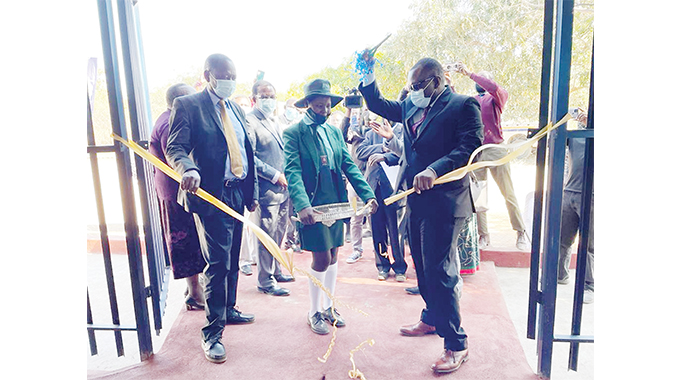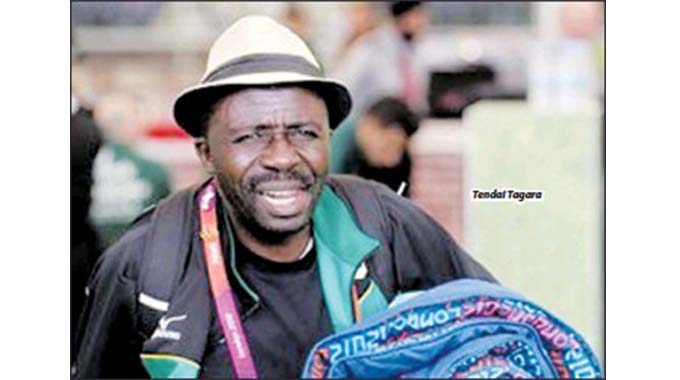Potraz erects base stations, CICs in Mat South

Prosper Ndlovu in Brunapeg, Mangwe
GOVERNMENT, through the Postal and Telecommunications Regulatory Authority of Zimbabwe (Potraz), has established four shared base station towers and 13 Community Information Centres (CICs) in Matabeleland South province as part of efforts to improve access to ICTs and bridging the digital divide between rural and urban areas.
The four base stations are situated in Manama (Gwanda), Hangwa, Maitengwe (Bulilima) and Mayobhodo in Mangwe District.
Using the Universal Services Fund (USF), Potraz has been championing similar projects across the country where thousands of people in previously unconnected areas are now benefiting.
Out of the 13 CICs in Matabeleland South, one is a containerised unit, while 12 were set up at post offices in districts and are now all operational.
According to Potraz, 1 542 people have been trained at the three CICs with training facilities in Jahunda (Gwanda), Maphisa and Beitbridge.
Yesterday the Minister of ICTs, Postal and Courier Services, Dr Jenfan Muswere, officially launched the Brunapeg Village Information Centre, bringing to four the number of centres with training facilities in the province.
In line with the e-learning drive, through USF, Potraz has facilitated provision of connectivity to 76 schools in Matabeleland South under the Schools Connectivity Programme and a further 38 schools are earmarked to benefit.
Using the same fund, the regulator has distributed 540 laptops to local schools with 428 more set to be distributed to 49 schools in the province.
In his keynote address, Minister Muswere said base stations and CICs were important in bridging the digital divide as they provide affordable access to ICTs and help to overcome age, income and gender divides.
“Throughout history, technology has been a dominant force in driving economic growth that uplifts countries and their people,” he said.
“The world is currently going through a time of immense change due to the 4th Industrial Revolution. As a country, we stand to benefit tremendously in this new era. I personally see great opportunities for us as a country and I believe it is only proper and fair to ensure that we all move together in this new revolution so that no one is left behind.
“CICs, therefore, play a critical role in ensuring the inclusion of communities in remote and unserved areas in this digital transformation.”
Robust development of ICT infrastructure buttresses Government’s commitment to the attainment of a digital economy and a knowledge society as espoused under Vision 2030. “The overriding aim of our digitalisation agenda is to use the power of technology to enhance people’s lives. ICT infrastructure is the foundation of digital economies,” said Dr Muswere.
“We cannot talk of any digital services without reliable internet connectivity. As Government we have created an enabling environment for both public and private sector investment in telecommunications infrastructure and internet connectivity.”
This stance by Government has seen both public and private players investing immensely in the ICT sector, bringing to fruition the aspirations of the National Development Strategy (NDS1) and the SMART Zimbabwe 2030 Master Plan.
In his remarks, Potraz director-general, Dr Gift Machegete, said more projects would be rolled out across the country using the USF resources so as to improve ICT access and use in rural and marginalised areas, which were previously left behind.
He urged the benefiting communities to use these facilities as innovation hubs, which will allow locals to develop their own ICT applications.
After the launch Minister Muswere handed over a donation of 11 computers each to 10 local schools.
Matabeleland South Provincial Affairs Minister, Abednico Ncube, said embracing ICTs was crucial for the success of the devolution agenda.
He said improving access to ICTs was urgent for rural areas where school pupils were performing poorly compared to their urban counterparts.
Bulilima West MP and Deputy Minister of ICT, Dingumuzi Phuthi, challenged network providers to upgrade connectivity to ensure locals enjoy social media and other digital services. At the moment only NetOne services the Brunapeg area with 2G network, which is weak.
Locals have also complained over failure to make online applications for nursing despite having St Anne’s Hospital as a training facility.
Mangwe legislator Cde Hlalani Mguni commended President Mnangagwa’s Government for championing the digital revolution in previously marginalised communities.
Also in attendance was ICT Ministry secretary, Dr Sam Kundishina, traditional leaders and senior civil servants.











Comments